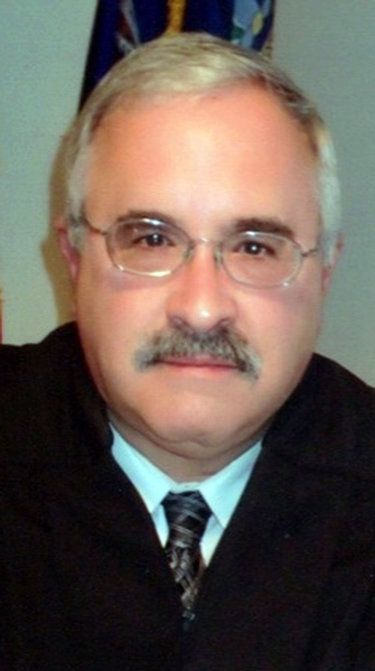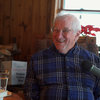Berne election 2017: Albert Raymond for town justice
Berne — Albert Raymond says he is honored to serve as town justice in Berne, and would like to continue serving the town for a third four-year term.
Raymond, a Democrat, is running on the Democratic line. He was appointed to the position of town justice after Richard Guilz stepped down in 2008, and ran to keep his seat in 2009 and 2013.
“It’s been such a remarkable experience,” said Raymond. “There was such a huge, steep learning to become a justice and remain certified.”
He said that he had traveled to larger, local town courts and Albany County Court for observation, and was able to devote himself to observation and education because he is retired. Raymond is a big advocate for education in this role, something he says he brings both in training and in life experience.
Raymond, 60, has lived in Berne for 31 years. He was born on a United States Army base in Germany but grew up in Rotterdam. He attended Hudson Valley Community College’s radiology program shortly after high school, and became a radiation technician working in area hospitals for about 10 years. He then went on to work for the United States Postal Service, first in a plant as a clerk.
“But my favorite part was the last 10 years,” he said. Raymond worked then as a clerk in downtown Albany, where he saw a variety of people, including many who were recently naturalized citizens receiving their first United States passport. During his time at the post office, Raymond also served as a shop steward and a legislative director for the Postal Workers’ Union.
After he retired, Raymond became a Department of Environmental Conservation-certified whitewater rafting guide. He is the former director of the New York State Magistrates Association and a member of the Albany County Democratic Committee.
In 2004, he was on a committee to help plan expansions at the Berne-Knox-Westerlo campus. He said his involvement with the school district helped him become more involved with his community. For 10 years, he served on the Berne Youth Council, and likes to advocate for youth.
Raymond said that he tries to treat all before the bench “with dignity and respect.”
“We, as humans, we’re not designed to be perfect,” he said. “So we occasionally make mistakes.”
The important factor is how an offender may respond to the mistake he or she made, which he says is why he enjoys working with the Community Accountability Board in Berne. The board consists of local people working with the Albany County District Attorney’s Office, which determines an alternative sentence to incarceration.
“It’s often an assignment which comes through a plea disposition, or you might call it a plea bargain,” he said, later noting that the town justice determines whether or not to use the plea bargain.
Raymond said that he has seen offenders, often young people who are able to move on from their crime, start anew, and have families and jobs.
He said he believes that the Raise the Age legislation, which will ensure 16- and 17- year olds can no longer be tried as adults, will affect judicial sentencing in a positive way.
“Any chance to give our youth another chance after a bad decision is a good thing,” he said, though he noted that this depends on the frequency or severity of the crime.
He added that this will cause a shift in cases directed to Family Court, where he serves as a judge during off-hours.
Raymond said that a judge is not allowed to oversee a case in which anyone is related within a sixth degree of consanguinity, such as a first cousin once removed or a second cousin, or anyone with whom he has had a business dealing within the last two years.
“Not only do we have to be concerned about those mandated decisions, but any kind of appearance of impropriety,” he said. He noted that, while he has many acquaintances, he would consider someone who has been to his home for dinner or vice versa to be a friend and a conflict of interest.
Raymond notes that he has known his fellow judge, Alan Zuk, for many years.
“We certainly cover for each other,” he said, of avoiding a conflict of interest in court.
He said that there have been a few cases that have been challenging; cases involving sexual assault are especially difficult, he said.
“I’m a father of three daughters, so you can imagine,” he said. Some cases, he said, he has found extremely disturbing.
However, as town justice he has also been able to officiate the marriage for one of his daughters and his son-in-law.
“It was probably one of the greatest days of my life,” he said.
Raymond noted that, rather being a further extension of law enforcement, judges instead make a decision on a situation between law enforcement and an individual.
“We’re more like a referee,” he said.
He added that he is able to make such decisions from his education and experience.
“I bring a lifetime of experience … I’ve come to love the law,” he said.


